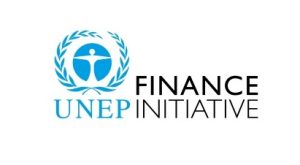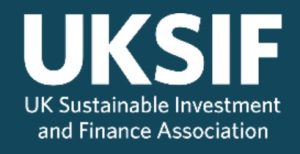This is the first article in the website column of TodayESG, comparing the global climate information disclosure standards TCFD and IFRS S2.
TodayESG
Comparison between TCFD and IFRS S2
This article compares two major global climate information disclosure standards: Task Force on Climate-Related Financial Disclosures (TCFD) and International Financial Reporting Standards S2 (IFRS S2).
TCFD and IFRS S2 both involve Governance, Strategy, Risk Management, Metrics & Targets. We compare the contents from these four perspectives.
TCFD and IFRS S2: Governance
The TCFD requires entities to disclose their governance processes for climate-related risks and opportunities, including:
- Board monitoring of climate risks.
- Management’s responsibilities and roles in managing climate risks.
IFRS S2 requires entities to understand the processes for monitoring and managing climate-related risks and opportunities, including:
- Responsibilities of governance organizations in relation to climate risk.
- Management’s responsibilities and roles in managing climate risks.
Compared with TCFD, IFRS S2 requires entities to disclose more information in terms of governance, including the climate policy formulated by the entity, the descriptions of each related department, and implementation policies.
TCFD and IFRS S2: Strategy
TCFD requires entities to disclose information on material climate risks and opportunities related to their business models and financial plans, including:
- The climate-related risks and opportunities identified by the entity in the short, medium, and long term.
- the impact of these climate risks and opportunities on the entity’s business and financial performance;
- The entity’s climate resilience under different climate scenarios.
IFRS S2 requires entities to disclose strategies for managing climate-related risks and opportunities, including:
- Climate risks and opportunities based on the entity’s industry.
- The entity’s climate risks and opportunities in terms of its business model and value chain.
- Entity’s response to these risks and opportunities.
Compared with TCFD, IFRS S2 places more emphasis on the impact of the entity’s industry on its climate strategy. This may be because different industries face different climate impacts, and the judgment of material factors is also different. In addition, IFRS S2 requires entities to disclose quantitative data and qualitative data, among which cash flow, financial performance, etc. need to be disclosed quantitatively. Qualitative information can only be disclosed when the company is unable to quantify climate impacts. IFRS S2 also requires entities to use all reasonable and supporting information in scenario analysis.

TCFD and IFRS S2: Risk Management
The TCFD requires entities to disclose how they identify, measure, and manage climate-related risks, including:
- The entity’s process for identifying and measuring climate-related risks.
- The entity’s processes for managing climate-related risks.
- How processes for identifying, measuring, and managing climate-related risks are integrated into the entity’s comprehensive risk management.
IFRS S2 requires entities to disclose how they identify, measure, and manage climate-related risks and opportunities, including:
- The entity’s process for identifying, measuring, and managing climate-related risks and opportunities.
- Additional disclosures involved in this process.
Compared with TCFD, IFRS S2 adds disclosure requirements for climate-related opportunities, possibly because ISSB hopes that entities will realize that managing climate risks can bring opportunities. IFRS S2 also requires entities to disclose additional information.
TCFD and IFRS S2: Metrics and Targets
The TCFD requires entities to disclose material metrics and targets for measuring and managing climate-related risks and opportunities, including:
- Metrics used by entities to measure climate-related risks and opportunities.
- Scope 1 2 carbon emission data and Scope 3 carbon emission data (if applicable).
- Performance indicators applicable to the entity’s management of climate-related risks and opportunities.
IFRS S2 requires entities to understand the performance of climate-related risks and opportunities, including:
- Metrics used by entities and their industries to measure climate-related risks and opportunities.
- Scope 1 2 carbon emissions data for the entity and its affiliates.
- Scope 3 data and the assumptions and input variables applicable to the data.
- The impact of the latest climate disclosure standards on metrics.
- Whether the indicators have been third-party verified and the measures to achieve net zero.
Compared with TCFD, IFRS S2 requires companies to be more specific in carbon emission data disclosure, including data disclosure of entity affiliates, and makes more standardized provisions for Scope 3. In addition, IFRS S2 focuses on the impact of changes in disclosure standards on entities and encourages entities to conduct verification of their data.
Reference:





